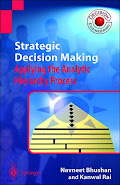1. Do Students Judge their Profs from the Facebook Profiles?
And the answer is HERE.
As per this study, student definitely form specific perceptions about the prof - but may not be using that info to decide on taking specific courses
2. Indians spent maximum time reading books per week ( 10 hours)
The study/survey shows HERE
My opinion on this data - % of people who can read "books" may be less than 10% in India which may be around 120 Million - a 3rd of US Population of around 360 Million (assuming). These 120 Million may read 10 hours per week meaning 1200 million hours of book reading per week. USA, assuming 60% can read books will be about 216 Million people spending 5 Hours per week per person leads to 1080 Millions hours of book reading - a comparable number in absolute terms - but in relative terms we are talking about a huge gap. How many % of Chinese population can read books - if it is say about 20% - they may be ahead of all. Nevertheless, its good to know, the Indians who can read books do read maximum
3. Fukushima a blueprint for Terrorists - Very Scary
Nuclear Meltdown a recipe for terrorist attacks - Japan time reports HERE
4. Countries on Global Innovation Index - Have a look at HERE
India a miserable 66, China 35! How to make India closer to top 10?
India as a country - defines and create the change that is needed world wide - can be one possible definition. What changes are needed globally? One can use the following lenses - Social, Technological, Economic, Ecological, Political and may be human Values - STEEPV. One can utilize other lenses - for example - Freedom, Openness, Variety, Directed Evolution, etc. One of the factors could be the organized MNCs that are becoming bigger economies than large Nations for example. However, making a nation innovative requires a deeper thinking and analysis I presume. Nothing to say that we already have been innovative - If one looks at how India as a Nation has survived , may be we have survived due to certain principles of mutual acceptance, diversity and adaptability to change. In that survival algorithm, may be we forgot and could not develop a designer algorithm in the material world. Or may be as a Nation we have evolved to a higher plane - in abstract - that makes the material world and material change"immaterial". I believe we need to learn the "design principles" - designing a Nation to achieve a purpose - however, we also need to retain our strengths of plurality, diversity and ability to adapt.
And the answer is HERE.
As per this study, student definitely form specific perceptions about the prof - but may not be using that info to decide on taking specific courses
2. Indians spent maximum time reading books per week ( 10 hours)
The study/survey shows HERE
My opinion on this data - % of people who can read "books" may be less than 10% in India which may be around 120 Million - a 3rd of US Population of around 360 Million (assuming). These 120 Million may read 10 hours per week meaning 1200 million hours of book reading per week. USA, assuming 60% can read books will be about 216 Million people spending 5 Hours per week per person leads to 1080 Millions hours of book reading - a comparable number in absolute terms - but in relative terms we are talking about a huge gap. How many % of Chinese population can read books - if it is say about 20% - they may be ahead of all. Nevertheless, its good to know, the Indians who can read books do read maximum
3. Fukushima a blueprint for Terrorists - Very Scary
Nuclear Meltdown a recipe for terrorist attacks - Japan time reports HERE
4. Countries on Global Innovation Index - Have a look at HERE
India a miserable 66, China 35! How to make India closer to top 10?
India as a country - defines and create the change that is needed world wide - can be one possible definition. What changes are needed globally? One can use the following lenses - Social, Technological, Economic, Ecological, Political and may be human Values - STEEPV. One can utilize other lenses - for example - Freedom, Openness, Variety, Directed Evolution, etc. One of the factors could be the organized MNCs that are becoming bigger economies than large Nations for example. However, making a nation innovative requires a deeper thinking and analysis I presume. Nothing to say that we already have been innovative - If one looks at how India as a Nation has survived , may be we have survived due to certain principles of mutual acceptance, diversity and adaptability to change. In that survival algorithm, may be we forgot and could not develop a designer algorithm in the material world. Or may be as a Nation we have evolved to a higher plane - in abstract - that makes the material world and material change"immaterial". I believe we need to learn the "design principles" - designing a Nation to achieve a purpose - however, we also need to retain our strengths of plurality, diversity and ability to adapt.
